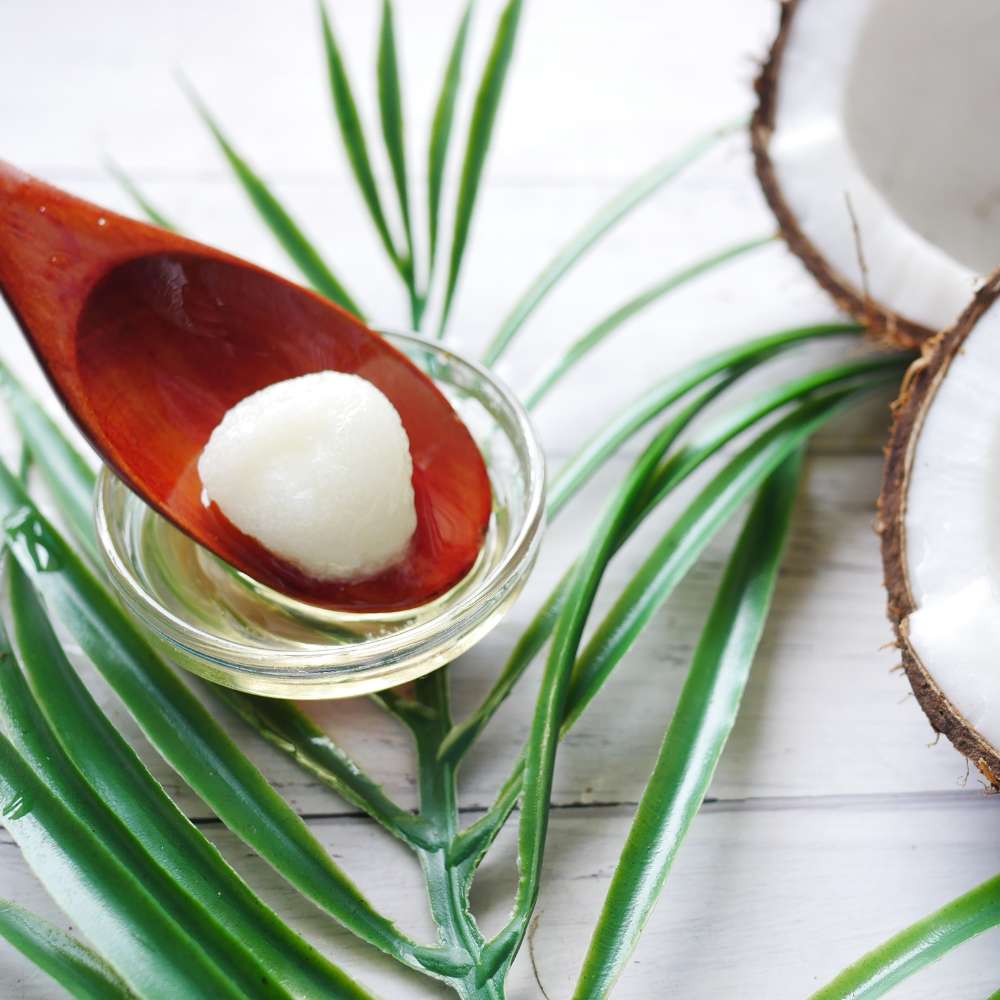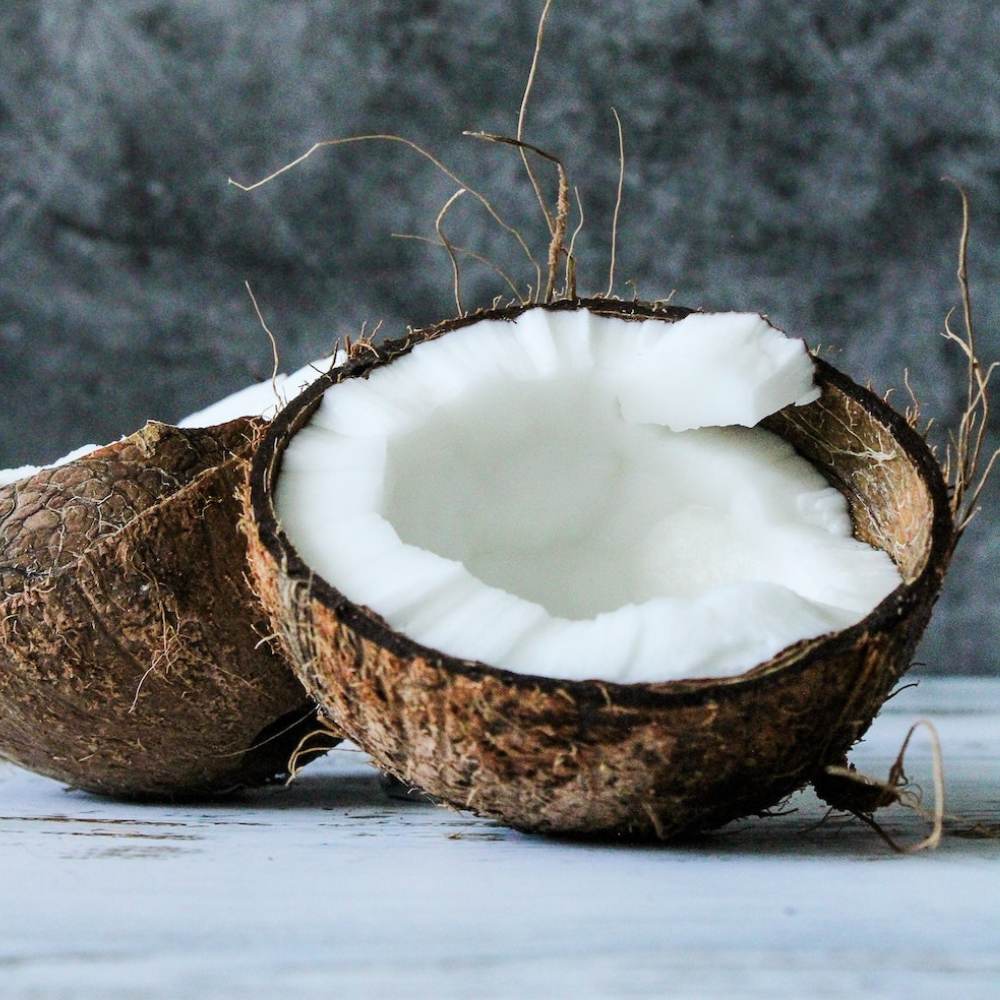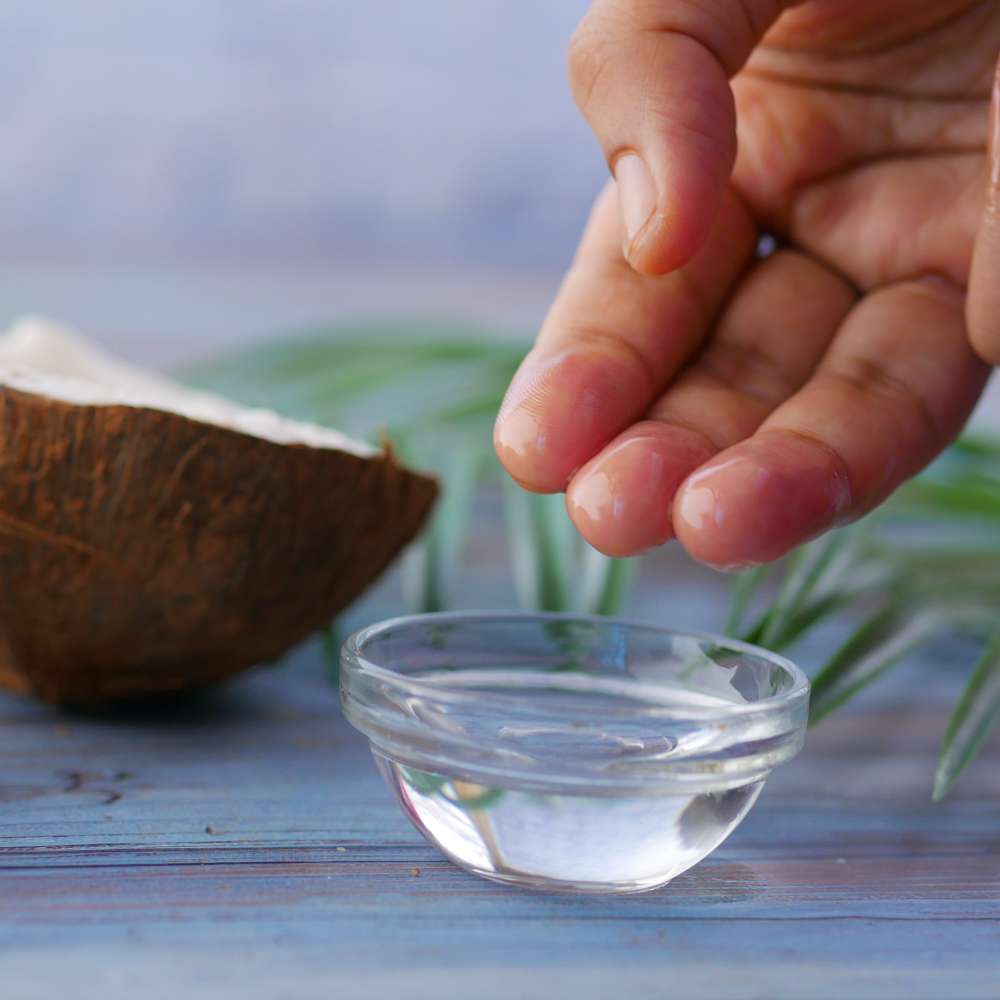
Is Coconut Oil Good for Curly Hair? Everything You Need to Know!
If you’ve ever had curly hair, you know the unique challenges of caring for it properly.
With so many products on the market claiming to be “curly hair friendly,” it can be difficult to know which ones are actually worth your time and money.
One product that has been gaining traction in recent years is coconut oil. But, is coconut oil good for curly hair?
We’re here to answer that question and more! Read on to learn everything you need to know about using coconut oil as part of your curly hair care routine.

What Is Coconut Oil?
First things first, let’s discuss what exactly coconut oil is. Coconut oil comes from the fleshy white fruit of the cocos nucifera plant.
The extract is solid at room temperature and melts when heated, making it a versatile product when it comes to cooking or beauty applications.
It also has a mild nutty flavor which makes it great for baking or cooking with.
What is the Difference Between Coconut Oil and Cold Pressed Coconut Oil?
To understand the difference between coconut oil and cold pressed coconut oil, you first need to learn about coconut oil’s production.
The process of making regular coconut oil begins with extracting the meat out of mature coconuts. This extracted meat is then dried before it is steamed or boiled in hot water which helps to release the oil from each individual piece of coconut.
After being heated, the steam or boiling liquid becomes a thick, creamy substance known as “coconut milk” which contains both water and volatile oils.
Once this cooling process is complete, an emulsion forms at the top made up mainly of fats and oils known as unrefined crude coconut oil which is ready for expeller pressing by machines into ordinary edible-grade cooked coconut oil.
On the other hand, cold pressed coconut oil’s production involves grating fresh coconuts into fine pieces before expeller-pressing them in cold temperatures (less than 120°F).
Unlike regular coconut oil production mentioned above where high temperatures are used to extract more oils from each piece of dried copra (flesh), cold pressing keeps these nutritious natural fatty acids intact leaving behind an organic bounty that has not been exposed to excessive heat or chemicals during extraction which ultimately makes it taste better too!
As a result, cold pressed, natural oils are much healthier; they contain more antioxidants compared to cooked varieties - plus filtered versions add another layer of healthy benefits such as reduced inflammation caused by free radicals.

What Does Coconut Oil Do For Curly Hair?
When used on curly hair, coconut oil acts as a natural moisturizer that helps keep your scalp healthy and hydrated while nourishing each strand from root to tip.
Its lightweight texture helps create a protective barrier against environmental pollutants that can cause damage such as split ends or frizzy hair, while still allowing your strands to breathe naturally.
Additionally, its high levels of fatty acids help lock in moisture for long-term hydration and shine without weighing down curls or making them greasy or oily feeling.
Plus, it even helps protect against heat damage caused by styling tools like curling irons or blow dryers.
How To Use Coconut Oil On Curly Hair
The key to using coconut oil on curly hair is moderation - too much can leave your hair greasy instead of moisturized!
Start by gently massaging a dime-sized amount into damp (not wet hair!) strands focusing mainly on the ends and avoiding your scalp - this will help prevent buildup that can block pores and lead to irritation or breakage over time.
For deeper conditioning treatments, you can warm coconut oil up and apply coconut oil in a generous amount all over then cover with a shower cap before sitting under a hooded dryer. Leave coconut oil on for 15 minutes for maximum absorption.
You should also make sure not use any other styling products before hand as this could inhibit the effectiveness of the treatment!
Once done simply rinse out with lukewarm water before styling as usual - no need for shampooing afterwards if you don't want too!
Is Coconut Oil Good for Textured Hair?
Yes, coconut oil is an excellent choice for this type ofdr hair. Not only is it a natural and powerful moisturizer, but it also penetrates deep into your strands to give them extra strength and shine.
Coconut oil has the ability to penetrate even the most dry and damaged hair follicles, making it especially beneficial for those with textured tresses.
Its antioxidant properties make it great for fighting off oxidative damage from environmental stressors such as pollution or UV radiation.
Additionally, coconut oil contains healthy fats that help nourish your scalp and protect against breakage from styling tools like heat irons or electric rollers.
It's also packed with lauric acid which helps keep strands strong by maintaining their natural oils so they won't become brittle over time.
All of these benefits make coconut oil a must-have ingredient if you're looking to nourish your curls, coils, kinks or afro-textures!

Can Too Much Coconut Oil Damage Hair?
It depends. Coconut oil is a great natural conditioner, but over-application can lead to product build-up and clogged pores in the scalp on certain people, resulting in weakened follicles and split ends. It really depends on your skin type, though.
It's also important to keep in mind that you don't want each hair strand overly saturated with oils or any product for that matter. Too much of anything will cause damage—even something as natural as coconut oil!
So take it easy on the coconut oil if you have sensitive skin or fine or thinning hair since these strands are typically more vulnerable when subjected long term exposure from heavy products like oils.
How Do You Use Coconut Oil for Hair Breakage?
The best way to do this is by creating a coconut oil deep conditioner or hair mask for the ends of your dry hair.
Combine equal parts of liquid coconut oil with honey or avocado to create a natural deep conditioning treatment resulting in healthy hair.
It will penetrate deep into the follicles while locking in moisture, protecting from thermal damage, restoring elasticity and minimizing split ends caused by dryness or over-styling.

Which is Better for Hair Coconut Oil or Sunflower Oil?
When it comes to hair care, both coconut oil and sunflower oil can be beneficial to the hair shaft.
From a nutritional perspective, both oils are rich in good fats, many essential vitamins and minerals that help nourish hair follicles, reduce dandruff and prevent split ends.
To start with coconut oil, it is an excellent source of medium-chain fatty acids that have strong anti-bacterial properties which have been proven to help treat scalp disorders like seborrheic dermatitis & itchiness.
Coconut oil also naturally helps stimulate healthy growth by delivering moisture directly into your hair shafts for smooth & shiny strands - all without any buildup or heaviness!
On the other hand, sunflower seed is a close runner-up since it’s packed full of vitamin E - a powerful antioxidant known for its ability to lock moisture in your scalp and prevent frizzing.
It has also been used as an effective treatment for dandruff due its anti-fungal properties which can keep scalp infections at bay!
Moreover, sunflower seed contains oleic acid (an omega-9 acid) which helps strengthen brittle strands while promoting cell regeneration making it great choice if you're trying to grow out your tresses fast!
There's no one size fits all answer here since everyone's hair needs are different; however when choosing between these two oils perhaps consider what type of benefits you're looking for before taking them either separately.
You can always combine both of them together for a super powered haircare experience. If you don't have either oil, you can also use almond oil.
Curly & Coconutty!
In conclusion, there is no one size fits all answer when it comes to caring for your curls - but applying coconut oil to your hair routine may just be the secret weapon you need for achieving shiny healthy locks.
Not only does this natural oil act as an effective moisturizer but its protective properties make it perfect for shielding against environmental pollutants while keeping frizz at bay on thick or coily hair.
Now you have all the information you need so why not give coconut oil for curly hair a try? And once you're hair is moisturized, be sure to enhance those curls with a curl activator for a finished look.
By the way, while you're slathering coconut oil on your hair you can also use it to moisturize your skin. Coconut oil also works great for chapped lips. Maybe it really is a miracle ingredient!

















